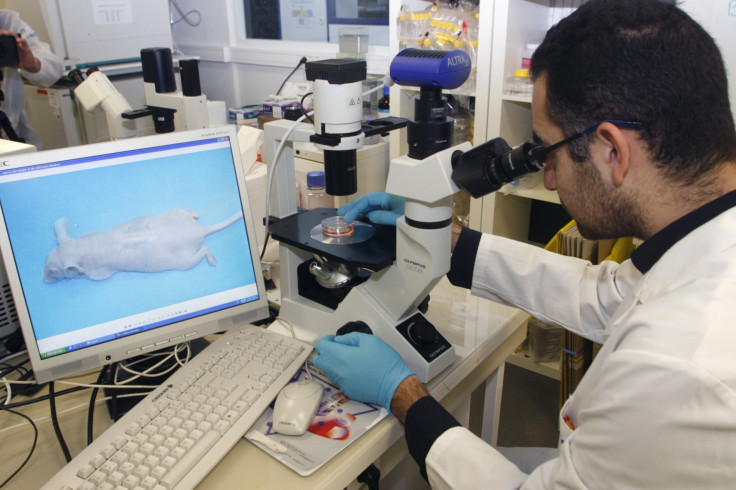Animal Experimentation In US Labs Shoots Up 72 Percent Since 1997, PETA Study Finds

The use of animals in U.S. lab experiments has shot up dramatically in the last two decades, a new study found. The hike comes despite a growing push from American consumers for more cruelty-free products and testing practices.
Federally funded researchers used 72 percent more animals from 1997 to 2012, according to a team at People for the Ethical Treatment of Animals (PETA). The average number of lab animals used in a year rose from nearly 75,000 to 129,000 over the 15-year period, the animal welfare organization said Wednesday.
Most of the animals used in laboratories are mice, rats and birds bred for experimentation, as well as fish, reptiles and amphibians. Nearly 99 percent of critters used in top-funded labs are not considered "animals" under the federal Animal Welfare Act, which governs the treatment of animals in laboratories, according to PETA's study published in the Journal of Medical Ethics.
By being excluded, the animals can't access "the meager legal protections afforded by the [act], such as the provision of pain relief following painful procedures, or the requirement to search for non-animal methods," researchers said in a news release. "No one actually knows how many are in laboratories because published data on the use of these animals are lacking."
The PETA team filed Freedom of Information Act requests to obtain reports from the National Institutes of Health (NIH), which disburses federal funding to institutions that experiment on animals. Every four years, those labs must report their animal counts to the NIH, though numbers aren't typically published or analyzed. PETA scientists obtained documents from the top 25 institutional recipients of NIH grants, which take in more than a quarter of all NIH grant money.
The 72 percent increase "was driven primarily by more frequent use of mice -- mainly genetically modified mice bred to carry genes that predispose them to crippling diseases and other maladies," PETA said. "The numbers don’t lie: Despite the availability of sophisticated, human-relevant, non-animal methods, experimenters are using more and more animals, and the vast majority of these animals have virtually no legal protections."
An NIH official disagreed with PETA's findings, NBC News reported.
"The article may be right on the numbers taken from the Animal Welfare Assurances, but those numbers do not accurately reflect the numbers of animals in use in research studies and thus we do not support the rationale and conclusions of the study," the official said in a statement to the broadcast network.
The PETA report follows a separate finding last month that U.S. agricultural researchers are reportedly subjecting lambs, pigs and cows to cruel and experimental breeding techniques. U.S. Department of Agriculture Secretary Tom Vilsack in January called for an independent review of the Meat Animal Research Center in Nebraska and directed agency staff to create an updated animal welfare plan within 60 days.
An earlier New York Times investigation exposed widespread abuse at the research complex, including the use of re-engineering techniques to produce farm animals that bear more offspring and yield more meat. The processes subject animals to "illness, pain and premature death, over many years," according to the Times report.
© Copyright IBTimes 2024. All rights reserved.





















